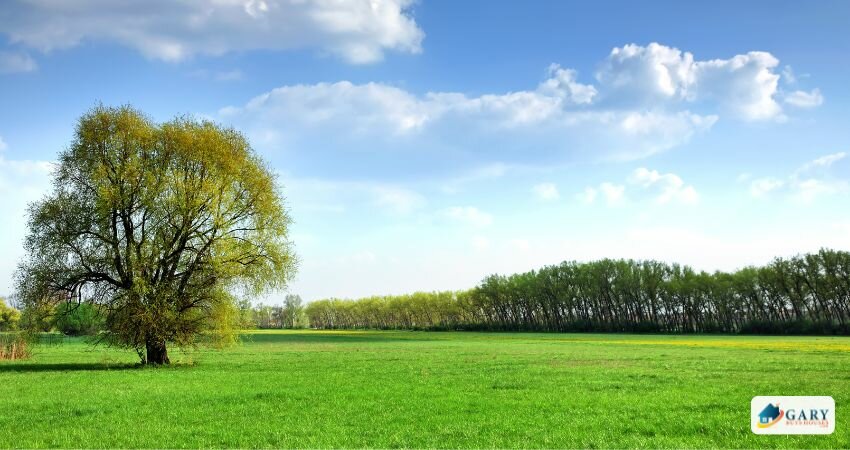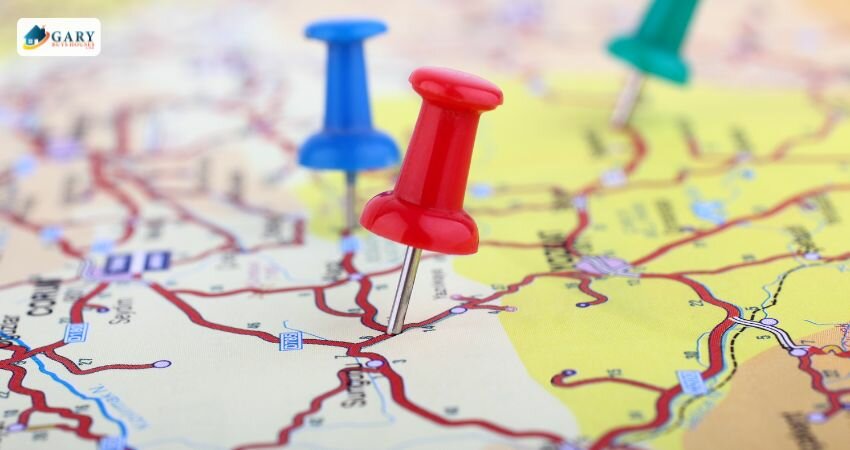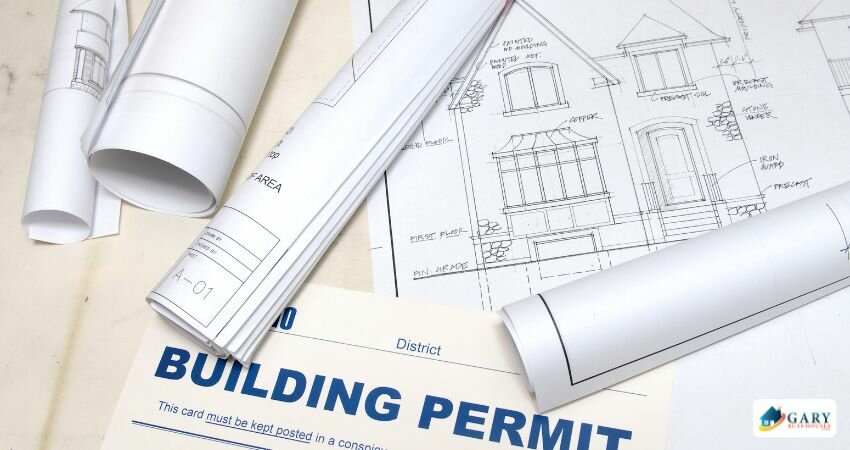Confused on whether it’s smart or not to buy an existing house or buy land to build your own house on? You’re not alone. Many people are trying to live the “American dream,” of owning a house. A popular possibility of that home-owner-dream is buying land to build a house later.
Is that the smart choice, though? Is that what you should do?
Buying Land to Build a House Later

When it comes to buying a house, there are a lot of options out there. You can buy an existing house or you can custom build the house of your dreams. Both of those options come with some pros and cons. Click here for a more in depth article on how to buy land to build a house on, and keep reading this one to learn about some of the strings attached.
Buying land to build a house on can be a great option for you. It can be exciting and fun, and it puts you in the driver’s seat. You get to call the shots.
However, there are some hoops you have to jump through. After all of the seemingly endless meetings with contractors, builders, real estate agents, and more, as well as making sure your blueprints are up to standard with zoning laws, and getting all the permits and loans in place (not to mention keeping everything within your budget,) sometimes… your “dream home” can seem a little nightmarish.
We’ll also discuss some alternative options if you find out that buying land maybe isn’t your thing.
5 things to consider when buying land
If you are thinking about buying land to build a house on, read through these 5 things to consider first to help you determine if you should buy land and build later.
1. Choosing Your Location for Land

The first point to think about is the location of the land you want to buy. It important to know who your neighbors are, how far away your land is from restaurants, what the climate is like in the place you’re moving to, etc, but it is even more important to check the zoning laws and regulations for the lot you want to buy.
Zoning laws govern what you can do on your land. If a zoning law or building code doesn’t let you put a driveway from your house to the main road, or if there is rules to how much or little you can build, or other things they will to be known. The specific zoning laws within an area might be a turn off to that area. Before anything else it is important to check the zoning and coding laws so you’re not wasting money on something you’re not allowed to do.
2. Cost of Buying Land
Buying land to build a house on may cost you more than buying an already existing home. On the other hand, buying land may be more affordable option- depending on the location and the housing market. Hopefully for you, buying land is the cheaper option, but that doesn’t take away from the need to go in with your eyes wide open.
The cost of buying land and building a home includes actually buying the land, permit fees, builder fees, real estate agent fees, landscaping, fixing the land up if needed, contingency fees, changes to the original blueprints, adding utilities, and more. Buying land can be great but it’s important to realize there is a lot you have to budget for.
3. Schedule

One of the nice things about buying an existing house is that the process can be really short. From day one of meeting with the realtor to closing the deal and signing the papers, you can be a home owner in a few months or less.
Buying land to build a house on is not that quick. You need to expect 6 months- a year, at least. Sometimes typically closer to two years. Be prepared for it to take some time to get everything built and done, and to jump through all those hoops.
4. Getting a Real Estate Agent
A real estate agent isn’t a required thing when buying land a building a house, but they are a smart asset. Sure, you can go drive around and look for empty lots or land for sale, and you might find something you love. But, a real estate agent will know the ins and outs of the city you are trying to build in, any problems that could arise with particular lots, establish the value of your property and more.
There are also more specified “land agents,” who know a lot about the zoning laws in an area, if a certain lot is prone to flooding or on a fault line or anything, and can also help you with financing and loans.
Even though it would add more to the cost, having a real estate or land agent check out the land you are looking at and give you their expert opinion could be a smart idea.
5. Pros & Cons to Buying Land

The last thing to consider when it comes to buying land to build on are the different pros and cons involved with it. For the “pro” side, you get a lot of freedom when it comes to buying land and building a home. You get to choose the area of your land, and (as long as it compiles with zoning laws,) what you want your house to look like. It also can be fun and exciting.
On the “con” side however, is the amount hoops you have to jump through. There’s a lot of permits and laws to worry about. There’s a building schedule and your house might take a while to get done, and the cost can keep increasing.
That is a lot. Does buying land sound like something you’d be interested in? If you understand all the pros and cons and other things to consider about buying land and building a house, and you’re still up for it- that’s awesome. If you read all that and are having second thoughts, below are a couple other options you can do instead.
Alternatives to Buying Land
One option you can do instead of buying land would be just to buy an existing home. This can be a great option for you with not quite as many hoops to jump through.
Another alternative would be to contact Gary who will give you a free cash offer on your house in 5 days or less. (And in whatever condition your house is currently in.) That way you’ll have the cash needed to do whatever you feel is your next step, whether you rent, buy existing, or buy land.
